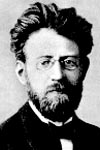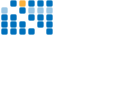The page of Gellner, František, English biography
Biography
19th June 1881 Jung Bunzlau (Mladá Boleslav) – probably September 1914 at the front in Galicia (now east-Poland/Ukraine)Frantšiek Gellner was born as the son of a prosperous Jewish salesman. He went to grammar school in Mladá Boleslav (1899). During his school years he took part in the issuing of the student magazines Lípa, Lucerna, Pêle-mêle and Mládí, in which he published his first poems, translations and drawings. Gellner made his debut as early as 1896 in the magazine Švanda dudák (Bagpipe Player Švanda).
After his final exam he studied two years at the Technical Highschool in Vienna (until 1902) and after that until 1904 at the Mining Academy in Příbram.
In the period before World War I Gellner was considered to be one of the so-called Prague bohemians and was in contact with poets of the anarchistic movement (Karel Toman, Fráňa Šrámek, Marie Majerová and others) who gathered in the villa of the poet Stanislav K. Neumann in the Prague district of Olšany (Wolschan).
In the autumn of 1905 Gellner left military service untimely. In the period 1905-1908 he studied to become a painter in Munich and Paris. In Paris he worked as a draftsman for important satirical magazines as Rire, Les Temps Nouveaux and Cri de Paris.
In the Czechoslovak Republic he published his drawings in the magazine Nový kult (he illustrated e.g. Křest sv. Vladimíra, the baptism of St. Wladimir, by Karel H. Borovský), in Šibeničky, Karikatury and Kalendář revolucionářů. In Paris he kept in contact with Karel Toman, Marie Majerová and Helena Malířová. In 1908 he returned to Czech because of his father’s illness, to study at the academy of arts in Dresden in 1909. In the years 1910-1911 he was in Paris again.
In 1911 he returned to the Czech Republic permanently, where he started to work for the magazine Lidové noviny in Brno, at first as caricaturist, later as an editor (he edited the literary content of the last page of the Sunday enclosure Večery). In this magazine he wrote serials and prose (Karikatury and Večery) and continued making satirical drawings (for Krameria and Večery).
Gellner was politically active and was the representative of the so-called Citizens Club of the Progressive People’s Party. Despite of his disease he joined the army in August 1914 en was directly sent to the front in Galicia (east Poland). In September 1914 he was reported missing.
http://www.ned.univie.ac.at




